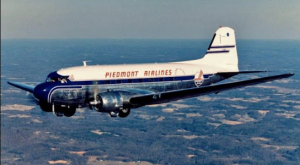
Saying Grace is Our Saving Grace
By Jim Dodson
In our house, saying grace at Thanksgiving — anytime, really — is something of a cosmic adventure. Like Forest Gump’s box of chocolate, you never quite know what you’ll get.
I suppose this is because we’re a fairly diverse lot as blended modern families go, a spiritually mixed tribe that includes everything from Catholic elders to Jewish young people, with a liberal sprinkling of Protestants in the middle. My wife grew up Roman Catholic but her college-boy sons, who were reared in a reformed Jewish tradition, now see themselves as broad-minded, multi-faith guardians of a fragile planet, enviro-crusaders. My own children, who grew up stout little Episcopalians singing in the Chapel Choir, now seem more inclined toward the meditational power of Buddhism seasoned with a smidge of the enlightened agnosticism from their late Scottish grandmother.
If there is fault to be assigned for this hot-house society of homegrown free-thinkers who gather round our supper table only a few times a year now, typically only at the holidays, it probably falls on the heads of my wife and me who dutifully instructed our children in the spiritual traditions of their forebears but strongly encouraged them to make up their own minds about matters of the spirit, for life has a way of road testing endurance and faith in a variety of unexpected ways.
Still, under my roof, I have certain practices and beliefs that aren’t fully negotiable and saying grace — offering a simple blessing of thanks over a shared evening meal — is one of them. Maybe it’s the force of tradition that perpetuates this ritual of gathering or possibly the simple grace that comes with the wisdom of saying thank-you.
Gratitude, goes an old French proverb, is the heart’s memory. “The mouth gives voice to what fills the heart,” points out Luke’s gospel.
Whatever it is, and regardless of their true feelings about the practice, our diverse band of cosmic travelers is pretty good-humored about humoring the old man’s old-fashioned desire to join hands, bow heads, and thank whatever kindly force of the universe allowed us to gather and break bread.
Perhaps they sense, as I certainly do, that in a world that’s moving as swiftly and unpredictably as the one around us does, the act of pausing to merely express a timeless form of gratitude to whatever divine and mysterious power shapes and illumines our lives is not only a healthy social exercise but a way of getting in touch with each other’s heart.
But there are always nice surprises, like the time my young daughter Maggie, then about age 4, pointedly asked to say her first grace at Thanksgiving and came out with: “Dear God, thanks for this nice food Mom made. And, oh, by the way, Christmas is coming up and I’d really like to have that doll house. And please stop Jack from whistling at bedtime. He’s so annoying.”
As far as this patriarch is concerned, all thanks are welcome. Blessings come in every form, as diverse and surprising as life itself.
My own faith journey, after all, is a pretty mixed affair of the heart. My great great grandfather was an itinerate Methodist preacher who founded churches across the state after the Civil War but I grew up in a skinny-legged Lutheran in Greensboro surrounded by two large and robust food-loving Methodist and Southern Baptist clans for whom sharing a homemade meal – and saying grace over it – was central to their exercise of faith. But this was just the foundation of my own magical mystery tour of grace. My first memorized blessing was the classic: “God is great. God is good. Let us thank him for our Food,” though some years later I raised more than a few shocked aunty eyebrows by declaring, “Good gravy. Good meat. Good God, let’s eat!”
By attending a Scout troop at a Quaker church, I grew fascinated by the idea of an inner light of God in every soul and the simplicity of Quaker ways. In high school, meanwhile, I fell hard for the transcendental writings of Henry Thoreau and Ralph Waldo Emerson, which naturally led me on to the sages of the East who heavily influenced them and a deepening love affair with the beautiful writings of ancient Hindu, Buddhist and Sufi poets whose grasp of the beloved seemed to eclipse and inform my own evolving understanding of a loving force that can’t be defined or contained by any particular religion or rigid doctrine.
To this day, as a result, wherever work or pleasure travels take me, I love turning up at a local cathedral, church, temple or synagogue simply to sit and soak up the music and prayers of the faithful. I even dig sitting in empty churches — recalling Emerson’s famous remark that the silence before the service is often more powerful than any sermon.
Moreover, as I age, like my own father and his father before him, I find myself less inclined toward the social politics and endless theological squabbles of modern church life in favor of the simple splendor of nature and changing seasons, seeing more of God’s presence in the smallest movements of the natural world, the silence of a vernal pool in spring, a walk along a leaf-strewn dirt road in fall, hungry birds at a winter feeder or my own growing garden. The path to heaven, as good and cheerful Buddhist friend of mine likes to say, is heaven itself.
During the two decades we lived on a forested hill in Maine, I claimed a granite rock looming over a hidden stream in the woods behind my house where the dogs and I used to go sit for a hour or so once a week, my private woodland cathedral, my personal philosopher’s stone where I retreated to just sit and think or not think, to simply observe and be observed by sovereigns of the forest. Invariably, I wound up counting my blessings.
Once, on a book tour, a radio interviewer asked me what religion I practiced.
Without thinking, I joked that I was probably unfit for any religion that would have me, per se, but was essentially a “Southern Transcendentalist and practicing Quaking Buddho-Episcotarian with a strong fondness for old timey Baptist hymns and a good Methodist covered dish homecoming supper on the lawn.”
“Is that, like, a real religion?” she wondered.
“Yes ma’am. With only one known practicing member, I’m afraid.”
When one of our own spiritual wayfaring progeny agrees to say grace over a holiday meal and comes out with a rambling exhortation about the shrinking Arctic shelf or the perils to the planet of an unchecked military industrial complex, I simply thank God for their own growing awareness the world they are inheriting.
Saying grace is, after all, simply a form of prayer — a conversation between Heaven and human beings as diverse as human society itself, dating back thousands of years before any single religion got itself organized. “Pray,” wrote the blind poet Homer, “for all men need the aid of the gods.”
Not surprisingly, prayers of gratitude or thanksgiving are among the oldest hymns of man, recorded as far back as ancient Mesopotamia. In every society the act of giving thanks to a higher power for the abundance of field and table is one of the most commonly defining elements of human civilization.
America’s first Thanksgiving celebration at Plymouth, Massachusetts, in 1621, was essentially a communal prayer of thanks to God for providing the food that sustained their fledgling colony in a dangerous new world. Saying grace from that day forward invariably took the form of thanking God as well as the hands who made the meal.
For more than two decades, even my Scottish mother-in-law, a wise old agnostic with a deeply tender heart, grasped the power of this idea and loved to lead us all in her favorite childhood grace – “Some hae meat and canna eat / Some hae meat and want it. But we hae meat and we can eat and so the Lord be thankit!”
Lately I’ve been researching potential new blessings and graces for our New Age Turkey Day table where the Southern-fried Transcendental patriarch always gets to say a few words of thanks as the candles are lot and hands joined. Lately, I find, the fewer the better.
A sampling of this year’s leading contenders:
“Do good and don’t look back.” – Dutch proverb
“He prayeth best who loveth best; all things both great and small.” – from “Rime of the Ancient Mariner” By Samuel Taylor Coleridge
“If your only prayer was thank you – that would be enough.” – Meister Eckhart
“A table is not blessed if it has fed no scholars.” – Yiddish proverb
“Blessed are we who can laugh at ourselves, for we shall never cease to be amused.” – Anonymous
“Grub first, then ethics.” – Bertholt Brecht
“Eat your bread with joy, drink your wine with a merry heart.” – Book of Ecclesiastes
“May the love that’s in my heart pass from my love to yours.” – Traditional American blessing
“Thou hast given me much. Give me one more thing – a grateful heart.” – George Herbert, English poet and pastor
Somehow, hands joined, this just says Thanksgiving to me.





